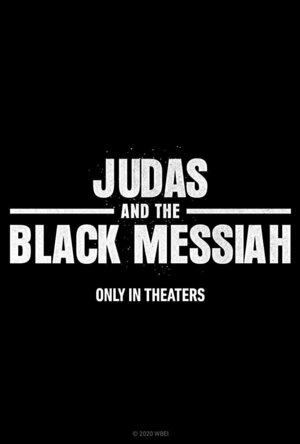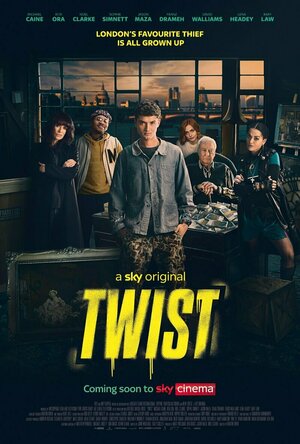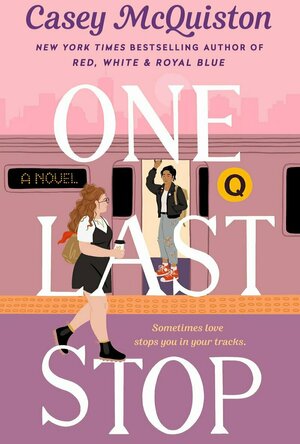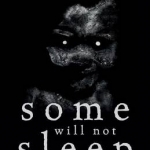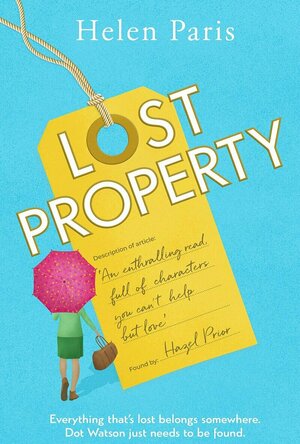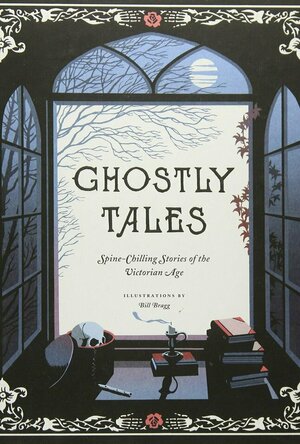Search
Search results

Mushrooms LITE
Reference and Book
App
The ultimate mushroom field guide for your pocket! +++ 300 species - 2000 images - 2...
Heather Cranmer (2721 KP) rated Paper Dolls (Dark Carousel #2) in Books
Nov 7, 2020
I really loved Dollhouse, the first book in the Dark Carousel series by Anya Allyn. I couldn't wait to dive into the next book in the series, Paper Dolls. I wanted to love Paper Dolls as much as Dollhouse, but it just wasn't as great.
Paper Dolls takes place right after Dollhouse although Paper Dolls also goes back to 1920 to focus more on Jessamine's back story and to thicken the modern day plot. While I loved Jessamine's story, Cassie's narrative is a bit lackluster. The pacing for Cassie's plot feels very slow moving. While there were a few plot twists regarding Cassie's story, the main one was the most predictable from early on. Don't get me wrong, Allyn's writing is fantastic, but Cassie's plotline just didn't wow me as before. Jessamine's, on the other hand, was fantastic! I loved learning more about Jessamine and how she become like she was in Dollhouse. Jessamine's narrative moved at a great pace, and I would get so excited when her chapters would come up. I also loved how Jessamine's chapters involved more backstory for Henry and Audette and explains how they became ghosts. It also talks more about the mysterious Donovan Fiveash. Many of the other characters, even characters with small parts, from Dollhouse are mentioned again in Paper Dolls. We get a bit more of their back story as well which was nice. There is a big cliffhanger at the end of this book which will lead into the next book in the series, Marionette. Although this book is intended for young adults, I would say it's more aimed towards a mature young adult audience as it's a lot more dark compared to Dollhouse.
As with the first book in the series, Anya Allyn did a fantastic job keeping her characters realistic relatable. Even though I found Cassie's story a little boring, I still enjoyed Cassie's character. I did find her a bit naïve in this book, but she is a teenager, so I could understand why she'd trust the first boy that showed her attention. I felt like I was Cassie's babysitter and was mentally urging her not to trust anyone! Jessamine was my obviously my favorite character. I just wanted to hug her as she had such a sad life for the most part. After reading her story, I understood why she was the way she was in Dollhouse. I really wanted to protect Jessamine throughout the whole book especially when she was still alive although I already knew she'd end up as a ghost. Henry was a character I didn't think I'd end up liking since he seemed like a bad guy in the first book. However, the audience is shown a whole different side of Henry in Paper Dolls. I just wanted Audette to disappear though. Not because she was written poorly but just because how vile and horrible she was to Jessamine. Although they were nice, I had a hard time trusting the Batiste family. They just seemed a little too nice for my liking.
Trigger warnings for Paper Dolls include death, murder, attempted rape, violence, occult activity, and mentions of sex (though not graphic).
Despite being a bit of a slow read, I still enjoyed Paper Dolls. Learning more about many of the ghosts' backstory was extremely interesting, and I loved all the characters. I would recommend Paper Dolls by Anya Allyn to those aged 16+ who love supernatural horror. I have already started reading Marionette, the next book in the Dark Carousel series, since I'm loving this series!
Paper Dolls takes place right after Dollhouse although Paper Dolls also goes back to 1920 to focus more on Jessamine's back story and to thicken the modern day plot. While I loved Jessamine's story, Cassie's narrative is a bit lackluster. The pacing for Cassie's plot feels very slow moving. While there were a few plot twists regarding Cassie's story, the main one was the most predictable from early on. Don't get me wrong, Allyn's writing is fantastic, but Cassie's plotline just didn't wow me as before. Jessamine's, on the other hand, was fantastic! I loved learning more about Jessamine and how she become like she was in Dollhouse. Jessamine's narrative moved at a great pace, and I would get so excited when her chapters would come up. I also loved how Jessamine's chapters involved more backstory for Henry and Audette and explains how they became ghosts. It also talks more about the mysterious Donovan Fiveash. Many of the other characters, even characters with small parts, from Dollhouse are mentioned again in Paper Dolls. We get a bit more of their back story as well which was nice. There is a big cliffhanger at the end of this book which will lead into the next book in the series, Marionette. Although this book is intended for young adults, I would say it's more aimed towards a mature young adult audience as it's a lot more dark compared to Dollhouse.
As with the first book in the series, Anya Allyn did a fantastic job keeping her characters realistic relatable. Even though I found Cassie's story a little boring, I still enjoyed Cassie's character. I did find her a bit naïve in this book, but she is a teenager, so I could understand why she'd trust the first boy that showed her attention. I felt like I was Cassie's babysitter and was mentally urging her not to trust anyone! Jessamine was my obviously my favorite character. I just wanted to hug her as she had such a sad life for the most part. After reading her story, I understood why she was the way she was in Dollhouse. I really wanted to protect Jessamine throughout the whole book especially when she was still alive although I already knew she'd end up as a ghost. Henry was a character I didn't think I'd end up liking since he seemed like a bad guy in the first book. However, the audience is shown a whole different side of Henry in Paper Dolls. I just wanted Audette to disappear though. Not because she was written poorly but just because how vile and horrible she was to Jessamine. Although they were nice, I had a hard time trusting the Batiste family. They just seemed a little too nice for my liking.
Trigger warnings for Paper Dolls include death, murder, attempted rape, violence, occult activity, and mentions of sex (though not graphic).
Despite being a bit of a slow read, I still enjoyed Paper Dolls. Learning more about many of the ghosts' backstory was extremely interesting, and I loved all the characters. I would recommend Paper Dolls by Anya Allyn to those aged 16+ who love supernatural horror. I have already started reading Marionette, the next book in the Dark Carousel series, since I'm loving this series!
Bob Mann (459 KP) rated Judas and the Black Messiah (2021) in Movies
Apr 25, 2021
Kaluuya and Stanfield excel (1 more)
Great US history lesson on the Black Panther movement
"Politics is war without bloodshed"
The ‘Judas’ in “Judas and the Black Messiah” is Bill O’Neil (LaKeith Stanfield). He works as an informer for FBI man Mitchell (Jesse Plemons), who has him over a barrel for impersonating an FBI officer. Fred Hampton (Daniel Kaluuya) runs the Chicago chapter of the Black Panther party and O’Neil is a trusted comrade on the inside.
Will O’Neil – always concerned that ‘snitches get stiches’ – stay on the side of ‘the pigs’, or be influenced by the ideals and good deeds of Chairman Fred?
Positives:
- Before this movie, I really had no idea what the Black Panthers were or how they operated. (If pushed, I would have tagged them as “internal terrorists” or similar). So this movie was really valuable to me in further understanding their role as a political movement. And their use of community programmes – focused, for example, around child nutrition and health improvements in inner cities – was a revelation.
- Given the BLM movement, and further ‘blue-on-black’ shootings, the film is timely. (Even more so for me, since the George Floyd trial verdict came out last night). “The United States vs Billie Holiday” showed how brutally the civil rights movement was put down by the authorities in the 40’s. This shows the same thing happened in the 70’s too. It’s again a movie that leaves you angry and frustrated at how poorly the black community have been abused in America. I guess counter to that is the positive view that things HAVE evidently improved significantly since then, albeit that the US is still on this journey.
- Nominated for Best Supporting Actor Oscars are both Stanfield and Kaluuya. (This is a highly debatable point, since arguably both of these gents are lead actors in the movie!) Both of them deliver outstanding performances, and Kaluuya has already picked up the BAFTA. Kaluuya demonstrates a huge amount of energy and charisma, particularly during the delivery of his stirring speeches. But Stanfield delivers a superbly nuanced performance, and perhaps impressed me even more.
- Also deserved, in a movie predominantly featuring a black cast, is recognition of the ever-excellent Jesse Plemons. As the steely-eyed FBI family man, he’s chilling to watch.
Negatives:
- I had issues with the sound mixing here. I found some of the dialogue – already hard for me to follow sometimes due to the speed of delivery and the accents – drowned out by background music and foley sounds.
- Martin Sheen’s make-up as J. Edgar Hoover was rather over-the-top and detracted from the role. (Sheen is in little more than a few cameo scenes).
Summary Thoughts:
I’m pleased I’ve managed to see this impressive Oscar contender before Sunday’s Academy Awards event. Interestingly, I noticed that historical advisors on the movie were Deborah Johnson (played here beautifully by Dominique Fishback) and the baby she was carrying (now Fred Hampton Jnr.).
As well as the two Supporting Actor nominations, it’s also up for Best Film, Best Original Screenplay, Best Cinematography (Sean Bobbitt) and Best Song (for “Fight for You”, played over the end titles, and very good).
(For the full graphical review, please check out One Mann's Movies here https://bob-the-movie-man.com/2021/04/21/judas-and-the-black-messiah-war-is-politics-with-bloodshed/. Thanks.)
Will O’Neil – always concerned that ‘snitches get stiches’ – stay on the side of ‘the pigs’, or be influenced by the ideals and good deeds of Chairman Fred?
Positives:
- Before this movie, I really had no idea what the Black Panthers were or how they operated. (If pushed, I would have tagged them as “internal terrorists” or similar). So this movie was really valuable to me in further understanding their role as a political movement. And their use of community programmes – focused, for example, around child nutrition and health improvements in inner cities – was a revelation.
- Given the BLM movement, and further ‘blue-on-black’ shootings, the film is timely. (Even more so for me, since the George Floyd trial verdict came out last night). “The United States vs Billie Holiday” showed how brutally the civil rights movement was put down by the authorities in the 40’s. This shows the same thing happened in the 70’s too. It’s again a movie that leaves you angry and frustrated at how poorly the black community have been abused in America. I guess counter to that is the positive view that things HAVE evidently improved significantly since then, albeit that the US is still on this journey.
- Nominated for Best Supporting Actor Oscars are both Stanfield and Kaluuya. (This is a highly debatable point, since arguably both of these gents are lead actors in the movie!) Both of them deliver outstanding performances, and Kaluuya has already picked up the BAFTA. Kaluuya demonstrates a huge amount of energy and charisma, particularly during the delivery of his stirring speeches. But Stanfield delivers a superbly nuanced performance, and perhaps impressed me even more.
- Also deserved, in a movie predominantly featuring a black cast, is recognition of the ever-excellent Jesse Plemons. As the steely-eyed FBI family man, he’s chilling to watch.
Negatives:
- I had issues with the sound mixing here. I found some of the dialogue – already hard for me to follow sometimes due to the speed of delivery and the accents – drowned out by background music and foley sounds.
- Martin Sheen’s make-up as J. Edgar Hoover was rather over-the-top and detracted from the role. (Sheen is in little more than a few cameo scenes).
Summary Thoughts:
I’m pleased I’ve managed to see this impressive Oscar contender before Sunday’s Academy Awards event. Interestingly, I noticed that historical advisors on the movie were Deborah Johnson (played here beautifully by Dominique Fishback) and the baby she was carrying (now Fred Hampton Jnr.).
As well as the two Supporting Actor nominations, it’s also up for Best Film, Best Original Screenplay, Best Cinematography (Sean Bobbitt) and Best Song (for “Fight for You”, played over the end titles, and very good).
(For the full graphical review, please check out One Mann's Movies here https://bob-the-movie-man.com/2021/04/21/judas-and-the-black-messiah-war-is-politics-with-bloodshed/. Thanks.)
Emma @ The Movies (1786 KP) rated Twist (2021) in Movies
Feb 17, 2021
I'm not sure what grabbed me about this one to make me watch... probably the cast. When will I learn?
Twist has been fending for himself for a long time, but when he crosses paths with Dodge and Batesy, he finds himself a family on the wrong side of the law.
The trend for updating stories is one I've enjoyed in the past, but Twist felt like a weird hybrid of a film that... well, let's get into it.
It may have been based on Oliver Twist, but I genuinely don't think they should have made is such a big splash. Yes, there are similarities, but the majority of the time it just felt like it was the character names being thrown in at random to make the connection. And is it the sort of connection you need to exploit? I don't think that you've naturally got a crossover between what the story of Oliver Twist is and what is represented here.
As an ensemble it's got some pretty big names attached. Caine, Clarke and Headey are generally a good call when it comes to picking something to watch... this is definitely how I got tricked into watching Twist.
Caine was... Caine, if you know, you know. Headey was a psycho that came across so excessively over the top, maybe to give the film wider appeal in other markets? I'm not entirely sure to be honest. And Clarke at least made for some enjoyable watching.
Our other, younger cast members, were such a random group. Rafferty Law as Twist didn't give a lot, and I know that by the nature of his character origin and backstory his nature was supposed to be on a different level to the others, but I didn't find it very believable. Dodge and Batesy played by Rita Ora and Franz Drameh fit well together initially, but I quickly found Drameh to be much more skilled as Ora's acting became a little lacklustre.
Overall there's weren't many moments in Twist that worked for me because of this odd mix of cast. The biggest anomaly being Leigh Francis as the traffic warden. Had the tone of the film been different then I absolutely could have seen a place for him in it, but as it was his role stuck out like a sore thumb.
We witness a lot of freerunning (or parkour, I'm not sure which term is more appropriate here) through the film and they used this as an opportunity to fling the camera around too and put in some fancy moves. Generally I'm not a fan, and while they fit in the moment, they seemed out of place given that the rest of the camerawork felt a little more generic. I noted down that it seemed to almost be missing at some points, but I'm not sure if that's because I just sighed and ignored it or if it was only used on certain types of shots... I will not be watching it again to find out.
Twist feels like it's what you would get if you took the TV series Hustle and mixed it with a London gangster movie... but without the same level of finesse. There is definitely something in this film but I think I was severely distracted by the attempt to capitalise on a bizarre reworking of a classic tale.
Originally posted on: https://emmaatthemovies.blogspot.com/2021/02/twist-movie-review.html
Twist has been fending for himself for a long time, but when he crosses paths with Dodge and Batesy, he finds himself a family on the wrong side of the law.
The trend for updating stories is one I've enjoyed in the past, but Twist felt like a weird hybrid of a film that... well, let's get into it.
It may have been based on Oliver Twist, but I genuinely don't think they should have made is such a big splash. Yes, there are similarities, but the majority of the time it just felt like it was the character names being thrown in at random to make the connection. And is it the sort of connection you need to exploit? I don't think that you've naturally got a crossover between what the story of Oliver Twist is and what is represented here.
As an ensemble it's got some pretty big names attached. Caine, Clarke and Headey are generally a good call when it comes to picking something to watch... this is definitely how I got tricked into watching Twist.
Caine was... Caine, if you know, you know. Headey was a psycho that came across so excessively over the top, maybe to give the film wider appeal in other markets? I'm not entirely sure to be honest. And Clarke at least made for some enjoyable watching.
Our other, younger cast members, were such a random group. Rafferty Law as Twist didn't give a lot, and I know that by the nature of his character origin and backstory his nature was supposed to be on a different level to the others, but I didn't find it very believable. Dodge and Batesy played by Rita Ora and Franz Drameh fit well together initially, but I quickly found Drameh to be much more skilled as Ora's acting became a little lacklustre.
Overall there's weren't many moments in Twist that worked for me because of this odd mix of cast. The biggest anomaly being Leigh Francis as the traffic warden. Had the tone of the film been different then I absolutely could have seen a place for him in it, but as it was his role stuck out like a sore thumb.
We witness a lot of freerunning (or parkour, I'm not sure which term is more appropriate here) through the film and they used this as an opportunity to fling the camera around too and put in some fancy moves. Generally I'm not a fan, and while they fit in the moment, they seemed out of place given that the rest of the camerawork felt a little more generic. I noted down that it seemed to almost be missing at some points, but I'm not sure if that's because I just sighed and ignored it or if it was only used on certain types of shots... I will not be watching it again to find out.
Twist feels like it's what you would get if you took the TV series Hustle and mixed it with a London gangster movie... but without the same level of finesse. There is definitely something in this film but I think I was severely distracted by the attempt to capitalise on a bizarre reworking of a classic tale.
Originally posted on: https://emmaatthemovies.blogspot.com/2021/02/twist-movie-review.html
Kristy H (1252 KP) rated One Last Stop in Books
Jun 3, 2021
A dazzling, heartfelt queer romance
August Landry moves to New York City, just another stop among many in her quest to prove that she's fine being alone. Everything she owns fits in five boxes, and she sleeps on an inflatable mattress. She belongs nowhere and needs no one. But NYC feels different to August: her diverse group of roommates, who adopt her immediately; her job at an all-night pancake diner; and the subway. Because the subway brings Jane: beautiful, enigmatic, leather jacket-clad Jane. Then August realizes something; Jane is always on the subway because she has to be. She's trapped and displaced in time from the 1970s. It seems as if August--and her new band of friends--may be the only one to save her. Can August believe in something, someone, enough to free Jane?
"Truth is, when you spend your whole life alone, it's incredibly appealing to move somewhere big enough to get lost in, where being alone looks like a choice."
I've put off writing this review because it's hard to see how I can do McQuiston's beautiful romance any justice. This book is such a romantic, sexy, and heartwarming read. August is an excellent character. She's spent most of her life in her uncle's shadow, working with her mother to try to solve his missing person's case. August eventually declared herself done--done searching, done with mysteries. But then this beautiful woman appears on the subway, and she offers the biggest mystery of all to August. Why is Jane stuck on the subway and how can August help?
"And she can't believe Jane had the nerve, the audacity, to become the one thing August can't resist: a mystery."
McQuiston gives us the most amazing, diverse queer novel one could ever wish for. August is bi and Jane basically every lesbian's dream. It's impossible not to fall in love with this gorgeous Asian subway vision. Even better, through Jane and other events, it's a tribute to those who came before our generation. Jane was a (incredibly sexy) activist / riot girl in the 1970s, yet is shocked that you can typically be openly gay on the subway now. She comes to everyone's defense there. She's amazing. As for August's roommates, they are beautiful and diverse, including trans and gay characters, with the lovely Myla taking care of the group. There are several drag queens given legitimate, true storylines. To say how meaningful this is to the queer community--it's hard to even explain. All of these characters--roommates Myla, her boyfriend, Niko, and Wes; neighbor Isaiah; coworkers Lucie and Winfield--are real and treated with care. They are funny, flawed, and create the most amazing found family ever.
"Jane doesn't age. She's magnetic and charming and gorgeous. She... kind of lives underground."
As for August and Jane, this is a romance for the ages. This book is swoony and sexy. It will make you laugh; it will make you cry. McQuiston has written a lesbian character for us lesbians to ogle for years to come, and a romance to stack all other romances against. It's funny and heartwarming. There's magic and mystery. There's pancakes. It's a beautiful ode to New York City, the subway, and falling in love. There's seriously nothing not to love.
So yes, I loved this book. I love McQuiston's way with words--the humor, the romance, the way she allows the queer community to have meaningful love stories in our world. This book is flowing with passion, with beauty, and magic. 4.5+ stars.
"Truth is, when you spend your whole life alone, it's incredibly appealing to move somewhere big enough to get lost in, where being alone looks like a choice."
I've put off writing this review because it's hard to see how I can do McQuiston's beautiful romance any justice. This book is such a romantic, sexy, and heartwarming read. August is an excellent character. She's spent most of her life in her uncle's shadow, working with her mother to try to solve his missing person's case. August eventually declared herself done--done searching, done with mysteries. But then this beautiful woman appears on the subway, and she offers the biggest mystery of all to August. Why is Jane stuck on the subway and how can August help?
"And she can't believe Jane had the nerve, the audacity, to become the one thing August can't resist: a mystery."
McQuiston gives us the most amazing, diverse queer novel one could ever wish for. August is bi and Jane basically every lesbian's dream. It's impossible not to fall in love with this gorgeous Asian subway vision. Even better, through Jane and other events, it's a tribute to those who came before our generation. Jane was a (incredibly sexy) activist / riot girl in the 1970s, yet is shocked that you can typically be openly gay on the subway now. She comes to everyone's defense there. She's amazing. As for August's roommates, they are beautiful and diverse, including trans and gay characters, with the lovely Myla taking care of the group. There are several drag queens given legitimate, true storylines. To say how meaningful this is to the queer community--it's hard to even explain. All of these characters--roommates Myla, her boyfriend, Niko, and Wes; neighbor Isaiah; coworkers Lucie and Winfield--are real and treated with care. They are funny, flawed, and create the most amazing found family ever.
"Jane doesn't age. She's magnetic and charming and gorgeous. She... kind of lives underground."
As for August and Jane, this is a romance for the ages. This book is swoony and sexy. It will make you laugh; it will make you cry. McQuiston has written a lesbian character for us lesbians to ogle for years to come, and a romance to stack all other romances against. It's funny and heartwarming. There's magic and mystery. There's pancakes. It's a beautiful ode to New York City, the subway, and falling in love. There's seriously nothing not to love.
So yes, I loved this book. I love McQuiston's way with words--the humor, the romance, the way she allows the queer community to have meaningful love stories in our world. This book is flowing with passion, with beauty, and magic. 4.5+ stars.
Lyndsey Gollogly (2893 KP) rated Some Will Not Sleep: Selected Horrors in Books
Jun 22, 2021
90 of 250
Kindle
Some Will Not Sleep: selected horrors
By Adam Nevill
Once read a review will be written via Smashbomb and link posted in comments
A bestial face appears at windows in the night.
In the big white house on the hill angels are said to appear.
A forgotten tenant in an isolated building becomes addicted to milk.
A strange goddess is worshipped by a home-invading disciple.
The least remembered gods still haunt the oldest forests.
Cannibalism occurs in high society at the end of the world.
The sainted undead follow their prophet to the Great Dead Sea.
A confused and vengeful presence occupies the home of a first-time buyer.
In ghastly harmony with the nightmarish visions of the award-winning writer's novels, these stories blend a lifelong appreciation of horror culture with the grotesque fascinations and childlike terrors that are the author's own.
So I wrote a few notes on each story that I enjoyed!
They are just little rambling I’m far from a in depth critic!
1. Where Angels come in
I’ve read this before and it it’s stuck with me for some reason. We all had that one house as kids that spooked us, only luckily mine was never full of creepy things.
2. The Original Occupant
A man determined to spend time in a Swedish forest finds himself disturbing a sacred ritual only to disappear after writing a frantic letter to his friends. After a search of the house and forest he’s never seen again! Really good and quite creepy never mess with someone’s sacred alter!
3. Mother’s Milk
Well that’s just made my stomach turn! A man thinks he’s found lodgings and a job finds himself turned into a milk fiend the source of the milk is definitely an interesting one.
4. Yellow Teeth
An old friend comes to visit and never leaves. This was creepy I’d just hate having someone around me that filthy and smelly.
5. Pig Thing
A strange little piggy tale after a family move to New Zealand
6. What God have Wrought
This follows a soldier searching across desert for the creature that holds his sister! For some reason this didn’t grab me.
7. Doll Hands
This is what will happen when the world comes to an end the over privileged using the poor souls as meat! Quite chilling!
8. To Forget and be Forgotten
I loved this! It reminded me of his Apartment 16 which is a book I fell totally in love with and the first book I read of Adams and this was in that style. A lot of the paragraphs struck home with me especially at the start! Solitude is something we all seek at some point and being around people can be taxing.
9. The Ancestors
This is the second time I’ve read this and it still creeps me out! A little girl makes friends with a ghost and some toys that have dark intentions and definitely dislike parents!
10.!The Age of Entitlement
11. Florrie
Another brilliant short! I think a good cleansing of all newly brought houses is in order to prevent this!
Overall I absolutely love his writing style each story even ones I didn’t quite click with transports you to that scene you’re reading. I’m building a steady collection of Adams books I highly recommend anyone of them!
Kindle
Some Will Not Sleep: selected horrors
By Adam Nevill
Once read a review will be written via Smashbomb and link posted in comments
A bestial face appears at windows in the night.
In the big white house on the hill angels are said to appear.
A forgotten tenant in an isolated building becomes addicted to milk.
A strange goddess is worshipped by a home-invading disciple.
The least remembered gods still haunt the oldest forests.
Cannibalism occurs in high society at the end of the world.
The sainted undead follow their prophet to the Great Dead Sea.
A confused and vengeful presence occupies the home of a first-time buyer.
In ghastly harmony with the nightmarish visions of the award-winning writer's novels, these stories blend a lifelong appreciation of horror culture with the grotesque fascinations and childlike terrors that are the author's own.
So I wrote a few notes on each story that I enjoyed!
They are just little rambling I’m far from a in depth critic!
1. Where Angels come in
I’ve read this before and it it’s stuck with me for some reason. We all had that one house as kids that spooked us, only luckily mine was never full of creepy things.
2. The Original Occupant
A man determined to spend time in a Swedish forest finds himself disturbing a sacred ritual only to disappear after writing a frantic letter to his friends. After a search of the house and forest he’s never seen again! Really good and quite creepy never mess with someone’s sacred alter!
3. Mother’s Milk
Well that’s just made my stomach turn! A man thinks he’s found lodgings and a job finds himself turned into a milk fiend the source of the milk is definitely an interesting one.
4. Yellow Teeth
An old friend comes to visit and never leaves. This was creepy I’d just hate having someone around me that filthy and smelly.
5. Pig Thing
A strange little piggy tale after a family move to New Zealand
6. What God have Wrought
This follows a soldier searching across desert for the creature that holds his sister! For some reason this didn’t grab me.
7. Doll Hands
This is what will happen when the world comes to an end the over privileged using the poor souls as meat! Quite chilling!
8. To Forget and be Forgotten
I loved this! It reminded me of his Apartment 16 which is a book I fell totally in love with and the first book I read of Adams and this was in that style. A lot of the paragraphs struck home with me especially at the start! Solitude is something we all seek at some point and being around people can be taxing.
9. The Ancestors
This is the second time I’ve read this and it still creeps me out! A little girl makes friends with a ghost and some toys that have dark intentions and definitely dislike parents!
10.!The Age of Entitlement
11. Florrie
Another brilliant short! I think a good cleansing of all newly brought houses is in order to prevent this!
Overall I absolutely love his writing style each story even ones I didn’t quite click with transports you to that scene you’re reading. I’m building a steady collection of Adams books I highly recommend anyone of them!
Lottie disney bookworm (1056 KP) rated Lost Property in Books
Jul 2, 2021
Dot Watson works in the TfL Lost Property office, meticulously labelling items found on London’s public transport in the hope of reuniting them with their owner. However, it soon becomes apparent that it is Dot who is lost, grieving the loss of her father to suicide, her mother to dementia and her ever-deteriorating relationship with her sister.
What isn’t initially clear is why Dot feels guilt-ridden by her father’s suicide but Paris carefully peels back the layers of Dot and her family’s lives to expose their loss, their love and their vulnerability.
Dot herself is fastidious in details, finding safety in rules, routine and order. Her safe words (Sellotape, safety pin, superglue) echo through the novel with no real context except to calm Dot, to allow her to keep everything together and in place. In contrast to this, Dot is clearly falling apart.
Dot’s life is already poles apart from what she envisioned for herself but circumstances cause her to fall further and start looking for an escape: an escape that she finds amongst the stacks of unclaimed items, with a little help from a bottle of absinthe!
Dot’s hallucinations do cause moments of humour but more than this they portray her raw grief and her depression. Dot tries to find a story behind every item in the stacks, to give the item an identity, an owner, a purpose. But what she is really looking for is her identity, her purpose. She passionately fights for these items, believing that their worth surpasses monetary value, but she cannot apply this to herself until it is almost too late.
The characters surrounding Dot serve to reflect how isolated she has made herself.
Our protagonist has few friends in her social circle and those that she does have seem to be work friends, in whom she often finds criticism. I really appreciated the roles of characters such as Anita, she never stopped inviting Dot to events even when Dot had refused several times before. Anita is the perfect model for a friend of someone with depression: keep showing up, keep listening and never give up.
Dot’s mother, Gail, has dementia and has recently moved out of the maisonette she shared with Dot and into a care home. The relationship between mother and daughter has never been as close as the bond Dot had with her father but Dot’s memories of her mother slowly unfurl into the recognition and acceptance of her as a person and a protector, rather than the background character she has always assumed her mother to be.
Dot’s sister Philippa seems to be a bit of a steamroller of a character at first, bossy and controlling in that she plans to sell the maisonette and thus make Dot homeless. However, Philippa finds her spotlight in the final few chapters, perhaps because Dot allows herself to see her sister properly and acknowledge the life and pain that they both shared. The resulting love between the two sisters is heart-warming.
Lost Property is heart-breakingly honest and open. I laughed and, as someone coming to terms with a dementia diagnosis within the family, I cried my little heart out. I frankly couldn’t believe Lost Property is Helen Paris’ debut novel. This is the most emotive book I have read this year.
Thank you to Bookstagrammers.com, Helen Paris and Penguin Random House UK for gifting me a hard copy of this book in exchange for an honest review.
What isn’t initially clear is why Dot feels guilt-ridden by her father’s suicide but Paris carefully peels back the layers of Dot and her family’s lives to expose their loss, their love and their vulnerability.
Dot herself is fastidious in details, finding safety in rules, routine and order. Her safe words (Sellotape, safety pin, superglue) echo through the novel with no real context except to calm Dot, to allow her to keep everything together and in place. In contrast to this, Dot is clearly falling apart.
Dot’s life is already poles apart from what she envisioned for herself but circumstances cause her to fall further and start looking for an escape: an escape that she finds amongst the stacks of unclaimed items, with a little help from a bottle of absinthe!
Dot’s hallucinations do cause moments of humour but more than this they portray her raw grief and her depression. Dot tries to find a story behind every item in the stacks, to give the item an identity, an owner, a purpose. But what she is really looking for is her identity, her purpose. She passionately fights for these items, believing that their worth surpasses monetary value, but she cannot apply this to herself until it is almost too late.
The characters surrounding Dot serve to reflect how isolated she has made herself.
Our protagonist has few friends in her social circle and those that she does have seem to be work friends, in whom she often finds criticism. I really appreciated the roles of characters such as Anita, she never stopped inviting Dot to events even when Dot had refused several times before. Anita is the perfect model for a friend of someone with depression: keep showing up, keep listening and never give up.
Dot’s mother, Gail, has dementia and has recently moved out of the maisonette she shared with Dot and into a care home. The relationship between mother and daughter has never been as close as the bond Dot had with her father but Dot’s memories of her mother slowly unfurl into the recognition and acceptance of her as a person and a protector, rather than the background character she has always assumed her mother to be.
Dot’s sister Philippa seems to be a bit of a steamroller of a character at first, bossy and controlling in that she plans to sell the maisonette and thus make Dot homeless. However, Philippa finds her spotlight in the final few chapters, perhaps because Dot allows herself to see her sister properly and acknowledge the life and pain that they both shared. The resulting love between the two sisters is heart-warming.
Lost Property is heart-breakingly honest and open. I laughed and, as someone coming to terms with a dementia diagnosis within the family, I cried my little heart out. I frankly couldn’t believe Lost Property is Helen Paris’ debut novel. This is the most emotive book I have read this year.
Thank you to Bookstagrammers.com, Helen Paris and Penguin Random House UK for gifting me a hard copy of this book in exchange for an honest review.
Hadley (567 KP) rated Ghostly Tales: Spine-Chilling Stories of the Victorian Age in Books
Jan 20, 2021
Ghost stories (1 more)
Well-written
This collection of tales will transport you to a time when staircases creaked in old manor houses, and a candle could be blown out by a gust of wind, or by a passing ghost. Penned by some of the greatest Victorian novelists and masters of the ghost story genre, these stories come alive alongside exquisitely eerie art in this special illustrated edition.
Since this is a short story collection, I will list the stories with a short synopsis and what I liked and disliked about them.
"Oh, Whistle, and I'll Come to You, My Lad" by M.R. James
A professor decides to go on vacation to work on his golf game while doing a little side work in the town's archaeology, but when he digs up an old whistle and blows into it, he instantly regrets what the whistle brings.
Liked: the buildup to the climax was done masterfully, and the superstition that was used as the premise of the story
Disliked: that the ending is never explained
"The Old Nurse's Story" by Elizabeth Gaskell
When a governess and her ward are taken to a haunted house, they found out that everyone has to pay for their misdeeds.
Liked: the perfect example of what Victorian ghost stories were
Disliked: Nothing; I really enjoyed this one
"The Signalman" by Charles Dickens
A railroad signalman tells a co-worker that he is seeing a ghost that warns him of future accidents, but his co-worker can't tell if he's telling the truth or losing his mind.
Liked: an excellent ghost story; I wish it were an entire novel
Disliked: nothing
"The Body-Snatcher" by Robert Louis Stevenson
When a medical student realizes that the 'donated' bodies are murder victims, he's not so sure he can live with the consequences.
Liked: the ending wasn't predictable
Disliked: at the start, there's a little confusion among who is who
" The Captain of the Pole-Star" by Sir Arthur Conan Doyle
A group of whalers are stuck in the middle of the ocean because of ice burgs, but the ice is the least of their problems when they begin to hear and see supernatural things out on the ice.
Liked: the plot of the story was really good
Disliked: the run-on sentences, some of the accents were hard to decipher, and the ending wasn't explained
"The Phantom Coach" by Amelia B. Edwards
A young man loses his way while on a hunt, but soon finds help with an old man that is convinced the supernatural is real, and when he senses the young man does not, he puts him up against forces from the other side.
Liked: the story never lulled, and the descriptions of the undead were amazing
Disliked: nothing, I thought the story was really good
"The Screaming Skull" by F. Marion Crawford
When the friend of a family finds a skull in the latter's home, he begins to question whether or not the husband murdered his wife.
Liked: I love that this story is actually based off an urban legend
Disliked: the way the author kept breaking away from the story to talk to the audience; it caused the flow of the story to stop
Overall, the Victorian-era authors knew how to write a ghost story. I absolutely loved this collection of short stories. I highly recommend this book to people who love a good 'ol fashioned ghost story (not the gory ones we have today).
Since this is a short story collection, I will list the stories with a short synopsis and what I liked and disliked about them.
"Oh, Whistle, and I'll Come to You, My Lad" by M.R. James
A professor decides to go on vacation to work on his golf game while doing a little side work in the town's archaeology, but when he digs up an old whistle and blows into it, he instantly regrets what the whistle brings.
Liked: the buildup to the climax was done masterfully, and the superstition that was used as the premise of the story
Disliked: that the ending is never explained
"The Old Nurse's Story" by Elizabeth Gaskell
When a governess and her ward are taken to a haunted house, they found out that everyone has to pay for their misdeeds.
Liked: the perfect example of what Victorian ghost stories were
Disliked: Nothing; I really enjoyed this one
"The Signalman" by Charles Dickens
A railroad signalman tells a co-worker that he is seeing a ghost that warns him of future accidents, but his co-worker can't tell if he's telling the truth or losing his mind.
Liked: an excellent ghost story; I wish it were an entire novel
Disliked: nothing
"The Body-Snatcher" by Robert Louis Stevenson
When a medical student realizes that the 'donated' bodies are murder victims, he's not so sure he can live with the consequences.
Liked: the ending wasn't predictable
Disliked: at the start, there's a little confusion among who is who
" The Captain of the Pole-Star" by Sir Arthur Conan Doyle
A group of whalers are stuck in the middle of the ocean because of ice burgs, but the ice is the least of their problems when they begin to hear and see supernatural things out on the ice.
Liked: the plot of the story was really good
Disliked: the run-on sentences, some of the accents were hard to decipher, and the ending wasn't explained
"The Phantom Coach" by Amelia B. Edwards
A young man loses his way while on a hunt, but soon finds help with an old man that is convinced the supernatural is real, and when he senses the young man does not, he puts him up against forces from the other side.
Liked: the story never lulled, and the descriptions of the undead were amazing
Disliked: nothing, I thought the story was really good
"The Screaming Skull" by F. Marion Crawford
When the friend of a family finds a skull in the latter's home, he begins to question whether or not the husband murdered his wife.
Liked: I love that this story is actually based off an urban legend
Disliked: the way the author kept breaking away from the story to talk to the audience; it caused the flow of the story to stop
Overall, the Victorian-era authors knew how to write a ghost story. I absolutely loved this collection of short stories. I highly recommend this book to people who love a good 'ol fashioned ghost story (not the gory ones we have today).

Roomle 3D & AR room planner
Productivity and Lifestyle
App
Easily create 3D floor plans and view your design ideas live in 3D and Augmented Reality. Furnish...

mi Flight Tracker Pro
Travel and Entertainment
App
mi Flight Tracker Pro is a simple yet powerful tool that allows you to track planes all over the...

